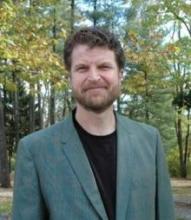What Is It
If the precise value of many physical constants had been different, the universe would not have supported life, human life, consciousness, philosophy and us. Is it just luck – without which we wouldn't even be here to worry about it? Or is there a Creator who wanted things to turn out the way they did, and fine-tuned the universe to get that result? What if there were many universes, with many combinations of values for the basic constants, and we just exist in the one with the improbable combination for life? John and Ken fine-tune their arguments with Robin Collins from Messiah College, author of God and the Laws of Nature.
Listening Notes
The world around us, teeming with life, surely couldn’t have come about by accident, could it? John poses this question to open the program. He then proposes that an intelligent, powerful being, or God, must have created the environment we live in. However, Ken refutes this argument, saying that physics teaches us that life and its constituents have come to be the way they are through a series of accidents, through luck. The theist, contradicts John, believes that the universe was deliberately tuned by God. Otherwise, it seems improbable that the amount of combinations and of parameters that must align in order to form a world such as ours would do so. Ken and John are left with the question of whether the current structure of the world is due to a cosmic accident or to divine planning and choice.
Ken and John welcome guest Robin Collins, Distinguished Professor of Philosophy and chair of the Department of Philosophy at Messiah College. They begin by asking Collins, whose first university degrees were in mathematics and physics, for a brief story of his journey. Collins explains he became a Christian when he was in college, though he still wondered about the existence of God. Collins studied theoretical physics and enjoyed discussing matters of religion, and decided to apply to graduate school in philosophy, specializing in philosophy of religion. Around the time, the first books on the fine-tuning of the universe were being published, peaking Collins’ interest in the topic.
John continues, asking Collins how we should go about thinking of the improbable events that we observe taking place in the universe when the universe itself is what is at issue. Collins replies that the fact that there is a universe that allows for conscious embodied agents such as ourselves offers strong evidence for the existence of God and not for cosmic accident leading to the current structure of the world. Ken wonders if there is really something surprising or mysterious to be explained of a life-supporting universe, to which Collins notes the improbability of such a universe coming to be without a God.
Ken and John continue to wonder whether we really need God to explain why our universe sustains human life and consciousness. Ken proceeds to introduce a third hypothesis of the structure of the universe: the multi-verse idea, where all the universes that could possibly exist actually do exist, and unsurprisingly, we exist in the universe that sustains life. Collins replies that this hypothesis offers even more of a buffer for the fine-tuning argument. John then presents the question of when and how the creator came to be, if we assume that the fine-tuning argument is correct.
The fine-tuning of the universe and the most likely sources of order of the universe are further discussed through audience participation and inquiry in the program. The show concludes with Ken and John reflecting on how, if at all, the argument for fine-tuning moves them.
- Roving Philosophical Reporter (Seek to 5:45): Philosophy Talk's Reporter Caitlin Esch talks to George Ellis, Cosmologist and Professor Emeritus at the University of Cape Town in South Africa, about the steps and parameters surrounding the development of the structure of the modern world.
- 60-Second Philosopher (Seek to 49:22): Reflecting on the fine-tuning argument, Ian Shoales recalls a childhood bully and wonders what the purpose of his encounters with said bully was. Thoughts of a God creating the universe did not comfort him then, and now he reflects upon various questions raised by this thought.
